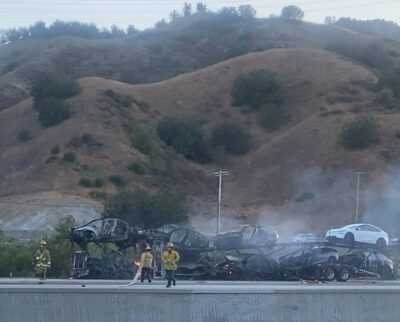By Jack Phillips and Emel Akan
Contributing Writers
President Donald Trump on Thursday announced that he was naming White House national security advisor Mike Waltz to be the U.S. ambassador to the United Nations, coming after reports indicating that Waltz would be leaving his advisory position.
In a Truth Social post on Thursday afternoon, Trump wrote that Waltz “has worked hard to put our nation’s interests first.”
“I know he will do the same in his new role,” he wrote.
“In the interim, Secretary of State Marco Rubio will serve as national security advisor, while continuing his strong leadership at the State Department. Together, we will continue to fight tirelessly to Make America, and the world, SAFE AGAIN.”
The announcement ended speculation on Waltz’s future in the administration after several news outlets, citing anonymous sources, said that Waltz would be departing. It comes just weeks after Waltz confirmed that he accidentally invited an Atlantic editor, Jeffrey Goldberg, into a Signal chat with other officials that included discussions on Yemen airstrikes.
Trump previously had named Rep. Elise Stefanik, R-N.Y., to become his ambassador to the U.N., but she was ultimately withdrawn from contention.
Reuters and other media outlets, citing anonymous administration officials, reported that Waltz and his deputy, Alex Wong, would be leaving the administration on Thursday.
White House press secretary Karoline Leavitt told reporters on Thursday that the administration was “not going to respond to reporting from anonymous sources” in response to reports that Waltz would be departing.
Waltz came under criticism in March after he was involved in a Signal chat that mistakenly included Goldberg, who subsequently claimed that officials in the chat made comments about U.S. airstrikes in Yemen. Goldberg said he was accidentally added to the group.
“I take full responsibility. I built the group,” Waltz told Fox News’ Laura Ingraham in late March, describing the incident as “embarrassing.”
Later in the interview, Waltz appeared unable to say why Goldberg was added to the chat group.
“I can tell you for 100% I don’t know this guy,” Waltz said about Goldberg.
In response to a question from Ingraham, he said that “if you have somebody else’s contact, then somehow it … gets sucked in. It gets sucked in.”
In an interview with NBC on March 25, Trump said he was confident in his adviser and said Waltz “has learned a lesson, and he’s a good man.”
Weeks later, Trump told media outlets that several National Security Council staffers were leaving the administration following the reports on the Signal chat.
“Always, we’re going to let go of people we don’t like, or people we don’t think can do the job, or people who may have loyalties to somebody else,” Trump told reporters on Air Force One on April 3, referring to the reports.
The Trump administration has said that no classified information was shared on the Signal chat, which included Defense Secretary Pete Hegseth and Vice President JD Vance.
“I think it’s all a witch hunt,” Trump said in late March.
Hegseth and other administration officials have said that no “war plans” were shared, disputing allegations made by Goldberg on the nature of the chat messages.
Hegseth, writing on X, said the Signal message chain included, “No names. No targets. No locations. No units. No routes. No sources. No methods. And no classified information.”
Before his tenure in the Trump administration, Waltz served as a Republican Florida congressman for three terms. An adviser to former Vice President Dick Cheney, Waltz became the first U.S. Army Special Forces soldier to be elected to Congress.












